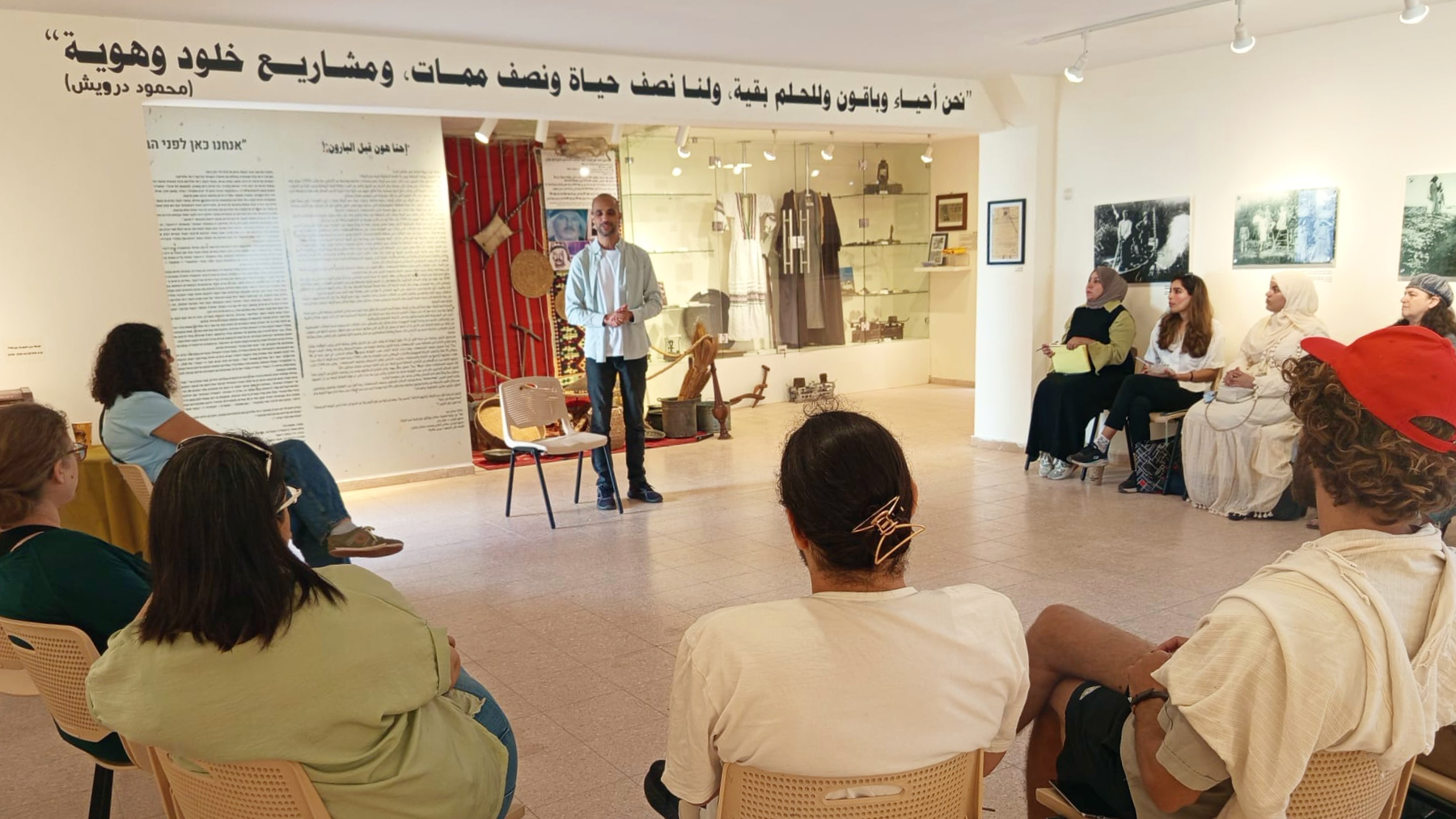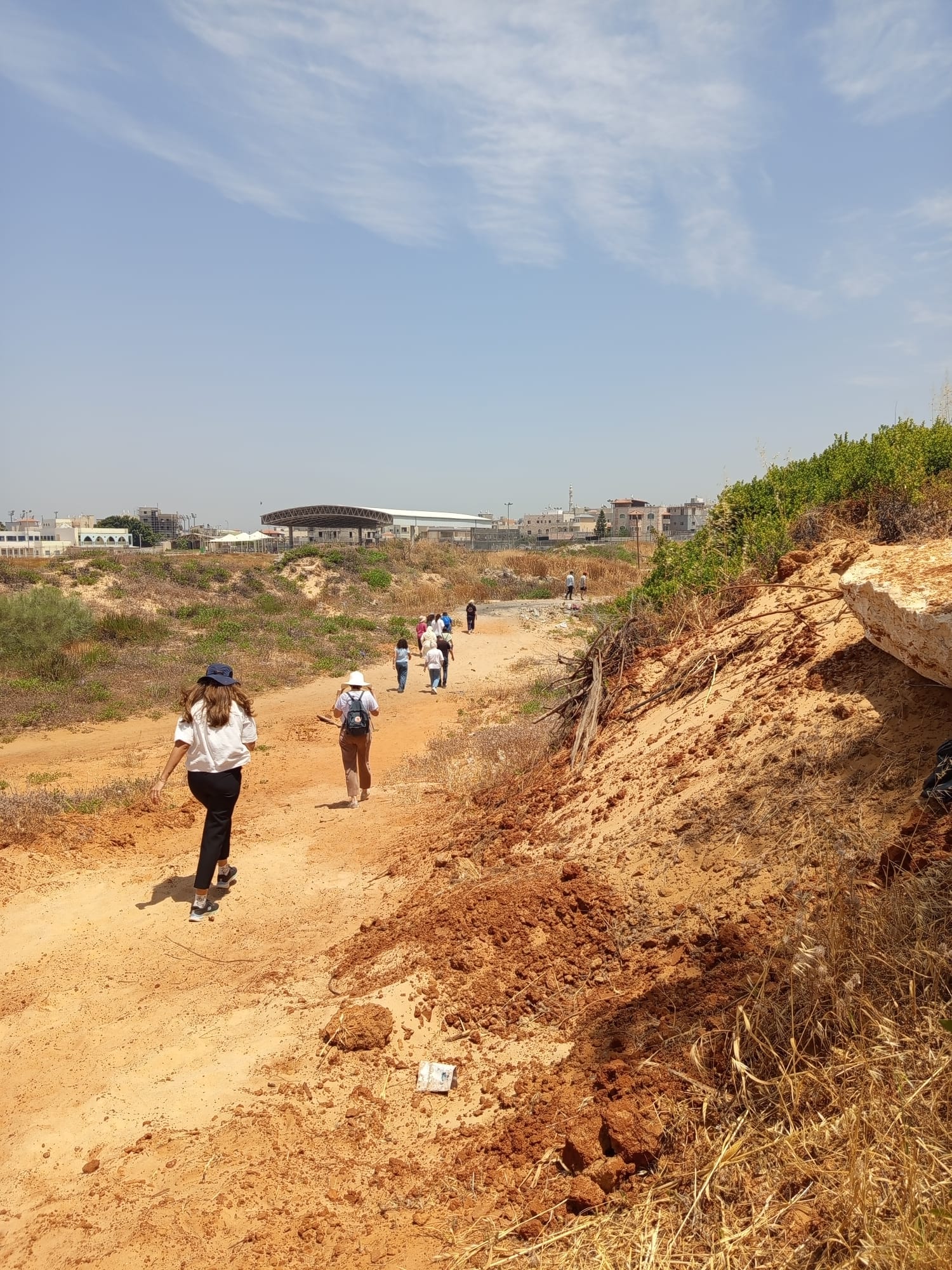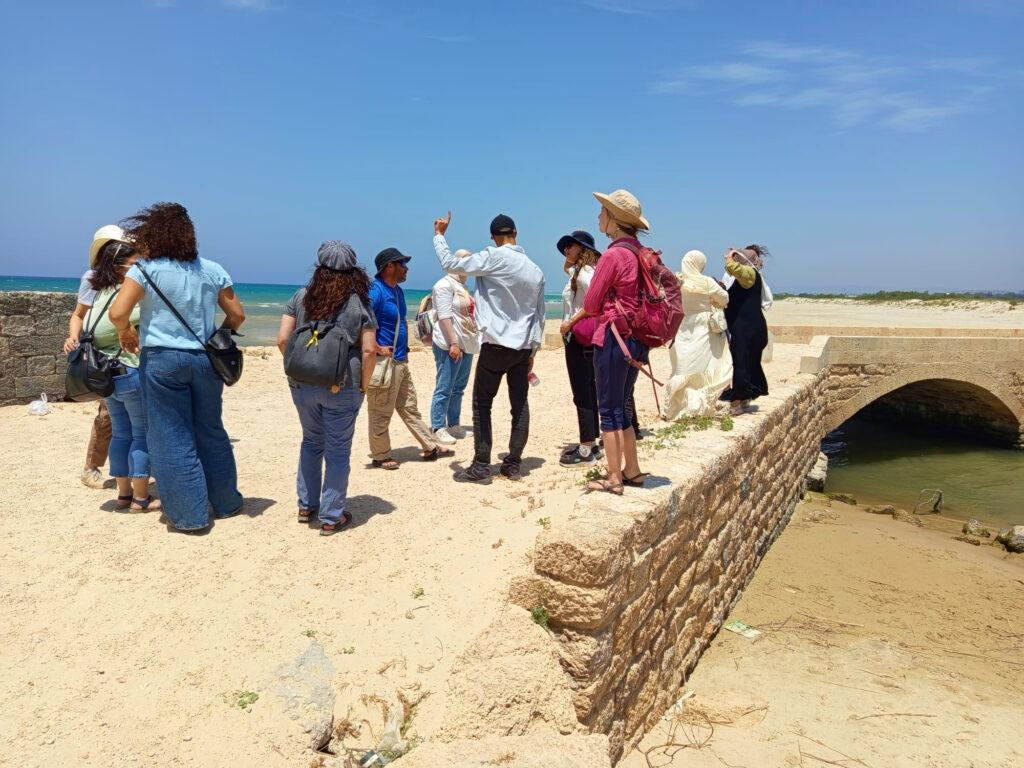A Tour in Jisr az-Zarqa: A Meeting Point Between Occupation and Environmental and Climate Justice
As part of the course “Agents of Change for Environmental Justice,” we took part in a unique educational tour in the village of Jisr az-Zarqa — the only remaining Arab village along the coast after 1948.
The tour was organized by our course partner, the Citizens for the Environment Association, and led by social and environmental activist Sami Alia — a local resident, municipal council member, director of the Village Heritage Museum, and general manager of the Fishermen’s Union.
During the tour, Sami shared with us the manifestations of environmental and climate injustice, political and spatial exclusion, and the daily struggles faced by the residents. He conveyed this through the historical narrative of the village, its social life, and infrastructure.
Our first stop was the Village Heritage Museum. There, we learned about the region’s history, the role of Jisr az-Zarqa’s people as traditional guardians of the Blue River (Nahal Taninim / Crocodile River) and the nearby water canal, and about the confiscation of farmers’ lands and the draining of wetlands following Baron Rothschild’s arrival in the area, the establishment of Zikhron Ya’akov, and eventually the founding of the Zionist state. From there, we continued to a lookout point over Caesarea, revealing the stark disparities between the affluent neighborhoods and the neighboring village. The apartheid was made visible through a bizarre 10-meter-high dirt barrier, alien to the surrounding ecosystem.

As we toured, Sami spoke about the current realities in the village: lack of investment in basic infrastructure, difficult living conditions, the fishermen’s struggles, discrimination and neglect in the face of environmental harm, and ongoing marginalization — both at the level of national policies and within Palestinian society in Israel.
We ended the tour with a shared meal at a local fishermen’s restaurant and an impromptu boat ride on Sami’s boat — a special social experience.
The tour was enriching and informative. In addition to exposing infuriating injustices, it served as an inspiration for activism and a motivating starting point for participants to begin working on their own projects and initiatives.

–

